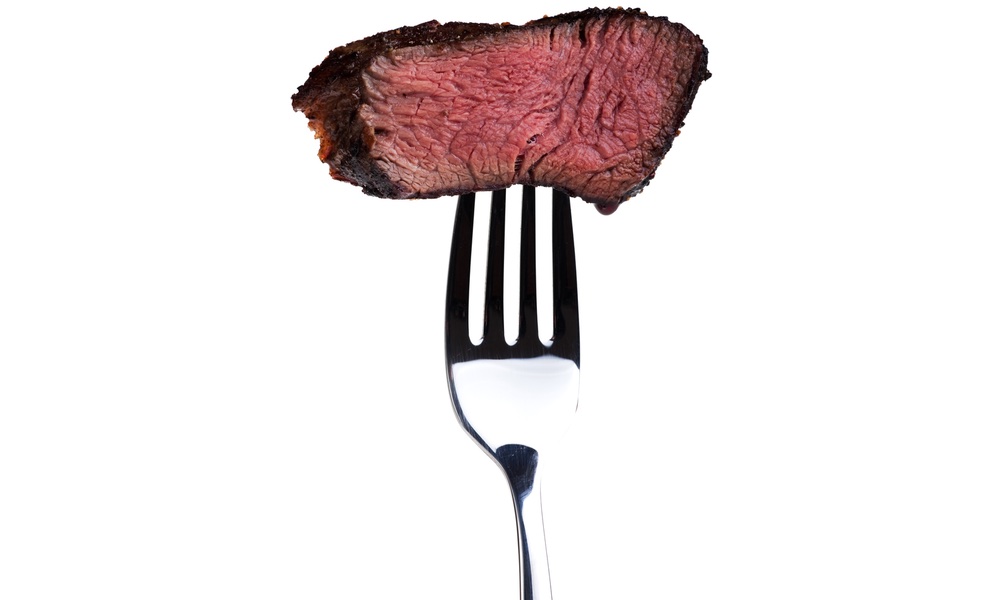Most of us know by now that eating red meat carries risks for the heart. Many studies have looked at the association between red and processed meat consumption and the risk of atherosclerotic cardiovascular disease (ASCVD). Saturated fats have long been seen as the culprit, but scientists are still trying to determine exactly why proteins from animal source foods can increase ASCVD risk.
Now it appears that some of the risk to our hearts comes from the way our bodies digest red meat. Metabolites of nutrients in meat created by the gut microbiome, the bacteria populating the gut, appear to raise ASCVD risk.
An international team led by researchers from Tufts University and the Cleveland Clinic found that every serving of red meat increased the risk of ASCVD by about 22 percent in almost 4,000 participants in the Cardiovascular Health Study, a long-term observational study of adults 65 years and older. Study participants were followed for about 12.5 years.Every serving of red meat increased the risk of atherosclerotic cardiovascular disease by about 22 percent.
“The interactions of red meat, our gut microbiome, and the bioactive metabolites they generate seem to be an important pathway for risk, which creates a new target for intervention to prevent heart disease,” Meng Wang, co-first author on the study, told TheDoctor.
About 10 percent of this increased risk was explained by increased levels of a metabolite of L-carnitine generated in the gut, trimethylamine N-oxide (TMAO), and two of its intermediates, gamma-butyrobetaine and crotonobetaine.
The link between red meat and atherosclerotic cardiovascular disease was also partly attributed to blood glucose levels and general inflammation caused by the consumption of processed meats. However, physiological pathways related to blood pressure and cholesterol levels did not play a role.
“The findings suggest that, when choosing animal source foods, it is less important to focus on differences in total fat, saturated fat, and cholesterol, and more important to better understand the health effects of other components in these foods, such as L-carnitine and heme iron,” coauthor Dariush Mozaffarian said in a statement.
These findings may give people the push they need to reduce their consumption of red meat. “This finding may convince on-the-fence flexitarians there is another scientifically plausible explanation for the harmful effects of red meat consumption published in a peer-reviewed medical journal,” Christopher Gardner, a professor of medicine at Stanford University, who was not involved in the study, told TheDoctor.Understanding the effects of meat consumption is particularly important in older adults because they are more likely to develop heart disease.
For those looking to eat less red meat, Gardner, who is also the chair of the American Heart Association’s nutrition committee, recommends beans — all kinds of legumes — as good sources of protein.
Interestingly, consumption of fish, eggs and poultry did not significantly increase the risk of atherosclerotic cardiovascular disease.
The study highlights another important physiological pathway that involves the gut microbiome, said Wang, a postdoctoral fellow at Tufts. “That raises the question of whether TMAO metabolites affect other health outcomes,” she said, adding that future studies should examine the health effects of the L-carnitine and heme iron in red meat.





